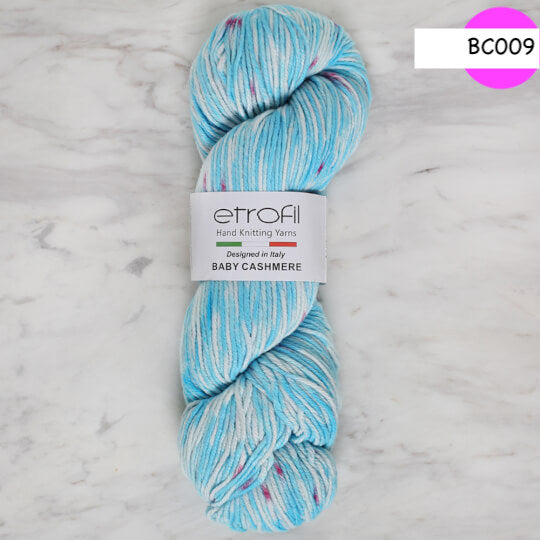Recognizing the Different Sorts Of Cashmere a Natural Fiber and Their Unique Advantages

The Beginnings of Cashmere: A Historical Review
While the glamorous touch of cashmere remains to appeal modern-day customers, its beginnings trace back to the rough, cold climates of Mongolia and the Mountain ranges. For centuries, the indigenous peoples of these areas have actually been raising Capra Hircus goats, the prime source of cashmere woollen. These goats, resistant versus the severe winters months, grew a fine undercoat to make it through, which later on came to be known as cashmere. The name itself admires Kashmir, an area in India where the woollen was initially processed. Much of the early cashmere profession route was assisted in by the Silk Roadway, linking Asia with the Center East and Europe. Regardless of its global spread, the finest cashmere is still believed to originate from the original regions of Mongolia and the Himalayas.

The Manufacturing Process: From Goat to Garment
Shearing a Capra Hircus goat notes the inception of the complex cashmere manufacturing process. This fragile procedure normally occurs annually throughout springtime. The fine, soft undercoat is after that divided from the coarser outer hair, a process called dehairing. The resultant raw cashmere is after that washed to eliminate contaminations such as vegetable, grease, and dirt issue.
The tidy fiber is subjected to dyeing, spinning, and weaving, or knitting, to transform it right into a textile. Complex treatments such as quality assurance checks and ending up procedures follow, guaranteeing the end product preserves the extravagant requirement expected of cashmere. This painstaking procedure, from goat to garment, justifies the high cost affixed to cashmere products, making them a symbol of deluxe and refinement.
The Numerous Kinds Of Cashmere: A Thorough Analysis

The Distinct Advantages of Cashmere: Comfort and Sustainability
Moving from the selection of cashmere types to the benefits they supply, comfort and sustainability stand apart plainly. Cashmere, an all-natural fiber, is renowned for its unrivaled gentleness, supplying a degree of convenience that artificial fibers can not match. The product's lightness, yet remarkable warmth retention, makes it optimal for all periods. Cashmere's natural elasticity enables it to return to its initial form, making it immune to extending or diminishing.
When it concerns sustainability, cashmere is sustainable and naturally degradable, as it's gathered from cashmere goats who regrow their coats each year. what is cashmere. Unlike artificial More Help fibers which can take hundreds of years to break down, cashmere's impact on the environment is marginal. This combination of comfort and sustainability makes cashmere a useful choice for conscious customers

Caring for Your Cashmere: Upkeep and Conservation Tips
While cashmere is unquestionably a lasting and luxurious choice, it needs particular care to maintain its top quality and expand its lifespan. To begin, cashmere ought to be hand cleaned using cool water and a moderate cleaning agent. Avoid wringing the garment or twisting as it can damage the fibers. Rather, carefully press out excess water and lay it flat on a towel to completely dry. Cashmere things must be stored in a dry and trendy place, away from direct sunshine and dampness. Utilizing moth repellents can secure these garments from potential damage. Finally, it's advisable to prevent hanging cashmere to avoid stretching. Rather, layer and shop them properly to keep their shape and top quality in time.
Spending in Cashmere: Understanding Its Value and Worth
Although cashmere may at first feel like an expensive financial investment, its long-term value and worth ended up being obvious when you consider its exceptional top qualities. Understood for its unmatched soft qualities and heat, cashmere is a premium natural fiber that exceeds other materials. Its high need and minimal supply add to its high cost, however its sturdiness ensures it lasts for years, offering excellent value for cash. Cashmere items are timeless, often coming to be antiques passed down through generations. what is cashmere. Its natural shielding buildings supply warmth without the bulk of their explanation artificial fibers. Purchasing cashmere, therefore, is not nearly existing fashion trends, however about embracing a sustainable, lasting, and elegant way of living.
Conclusion
In summary, the sort of cashmere one selects, be it Mongolian, Chinese, or Italian, is dictated by specific preferences for heat, sustainability, budget plan, and deluxe. The worth of cashmere expands beyond its cost, with convenience and long life including in its well worth. Proper care and maintenance can ensure its preservation. For that reason, comprehending the beginnings, production procedure, and one-of-a-kind advantages of various kinds of cashmere can guide consumers in their investment in this luxurious natural fiber.
Whether it's the exceptional warmth of Mongolian cashmere, the affordability of Chinese cashmere, or the eco-conscious manufacturing of Italian cashmere, there's a tale to be found behind each fiber type. Cashmere, an all-natural fiber, is renowned for its unequaled gentleness, providing a degree look at these guys of convenience that artificial fibers can't match.When it comes to sustainability, cashmere is naturally degradable and eco-friendly, as it's gathered from cashmere goats that regrow their layers yearly. Recognized for its unmatched gentleness and warmth, cashmere is a costs natural fiber that outperforms various other materials. Recognizing the origins, manufacturing procedure, and distinct benefits of various types of cashmere can guide customers in their financial investment in this elegant natural fiber.
Comments on “Understanding the Unique Qualities of cashmere fibre for Ultimate Comfort”